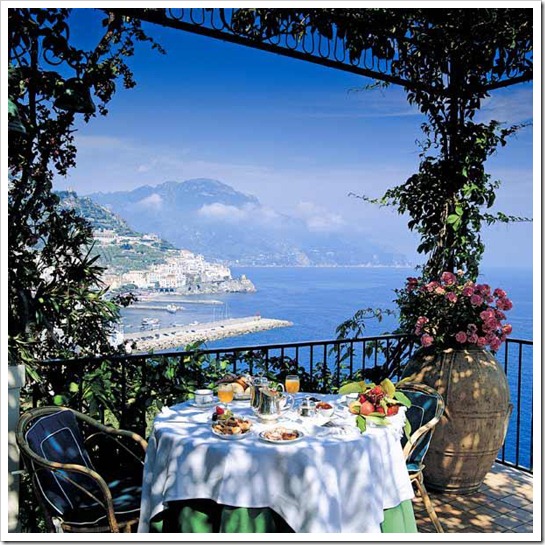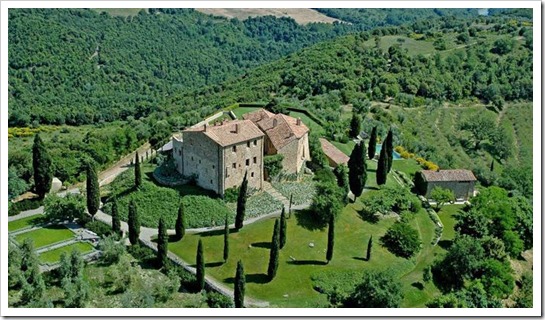How to Write a Hotel Booking Letter in Italian Posted by Serena on Apr 14, 2014 in Grammar, Italian Language
Thinking about taking a well deserved holiday in Italy? Perhaps it’s time to start booking that hotel.
Last week we looked at how to structure a formal letter in Italian, so let’s expand on that by concentrating on the corpo (content) of a hotel booking letter. The sample letter below contains a range of questions that you might want to ask. Simply pick those which are relevant to your situation:
|
Grammar Notes:
In the second part of the letter I wrote “La prego di comunicarmi i Vostri dati per poter effettuare il bonifico per il deposito”. Notice that I used the singular direct object personal pronoun ‘La’ (you formal) because I’m writing to the director. However, in the same sentence I used the possessive adjective in the plural form, i.e. ‘i Vostri dati’ (your data), because I’m asking for the bank details of the hotel, not the director’s personal bank details! I know it sounds confusing, but whenever we refer to the business as an entity we use the plural form. For the same reason I also used the plural ‘Vi’ in the sentence “Spero che questo non Vi crei alcun problema” (I hope this won’t be a problem for you plural). The ‘Vi’ here refers not only to the director, but to any member of staff that might be on duty that evening. N.B. in formal letters we usually write personal pronouns with the capital letter: La, Le, Sua, Vostri, Vi etc.
Is there anything else that you’d like to add to your booking letter? Let us know.

Build vocabulary, practice pronunciation, and more with Transparent Language Online. Available anytime, anywhere, on any device.






Comments:
Robin:
As ever Serena, another immensely helpful post. I have a couple of questions and wonder if you can answer them.
1. Why is it “c’è IL ristorante in albergo?” AND NOT “c’è UN ristorante in albergo?” or “c’è la piscina?” BUT NOT “c’è UNA piscina?” (by contract, you say “c’è UN ristorante/pizzeria/supermercato vicino all’albergo?”)
2. what is the difference between using “DISTA” and “DISTANZA” (in “quanto dista l’albergo dal centro?”)?
Many thanks in anticipo
Robin
Serena:
@Robin Salve Robin! Grazie per i complimenti.
Se non ti dispiace ti rispondo in italiano, è più facile per me.
1. Why is it “c’è IL ristorante in albergo?” AND NOT “c’è UN ristorante in albergo?” or “c’è la piscina?” BUT NOT “c’è UNA piscina?” (by contract, you say “c’è UN ristorante/pizzeria/supermercato vicino all’albergo?”)
Tutte e due le forme vanno benissimo: il/un ristorante, la/una piscina. E’ una questione di stile personale: normalmente in un albergo (non mega galattico!) c’è un solo ristorante e una sola piscina, per cui ‘il ristorante’ e ‘la piscina’. Infatti si dice: ‘il ristorante dell’albergo è aperto …’ Mentre nella domanda “c’è UN ristorante/pizzeria/supermercato vicino all’albergo?” ho usato ‘un’ perché nelle vicinaze ci può essere più di un ristorante/pizzeria/supermercato. A me ne interessa ‘uno’ in generale.
2. what is the difference between using “DISTA” and “DISTANZA” (in “quanto dista l’albergo dal centro?”)?
‘dista’ is the third person singular from the verb ‘distare’ (to be far/away): ‘Pontremoli dista 35 km da La Spezia’.
‘distanza’ is a noun: ‘la distanza da Pontremoli a La Spezia è di 35 km’
Spero di essere stata chiara
Tanti saluti
Serena
Robin:
Grazie mille Serena.
Guest:
Thanks for this useful article. I would love to have some notes on how to write emails. Are they as formal? Or do you even have set rules. Also is email a masculine or feminine noun? I have seen it written both ways.